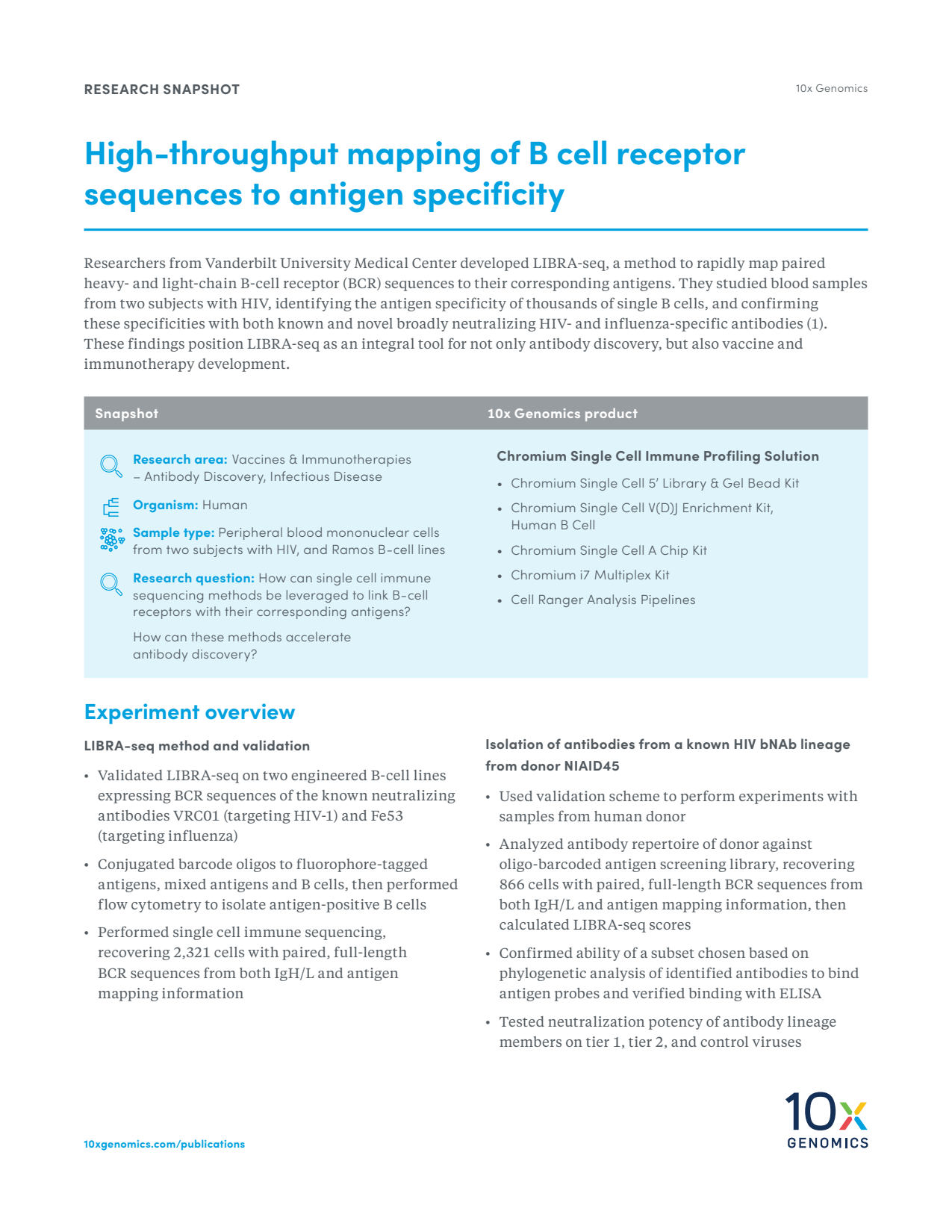
High-throughput mapping of B cell receptor sequences to antigen specificity
Researchers from Vanderbilt University Medical Center (Nashville, TN, USA) developed LIBRA-seq, a method to rapidly map paired heavy- and light-chain B-cell receptor (BCR) sequences to their corresponding antigens. They studied blood samples from two subjects with HIV, identifying the antigen specificity of thousands of single B cells, and confirming these specificities with both known and novel broadly neutralizing HIV- and influenza-specific antibodies (1). These findings position LIBRA-seq as an integral tool for not only antibody discovery, but also vaccine and immunotherapy development.
Researchers from Vanderbilt University Medical Center (Nashville, TN, USA) developed LIBRA-seq, a method to rapidly map paired heavy- and light-chain B-cell receptor (BCR) sequences to their corresponding antigens. They studied blood samples from two subjects with HIV, identifying the antigen specificity of thousands of single B cells, and confirming these specificities with both known and novel broadly neutralizing HIV- and influenza-specific antibodies (1). These findings position LIBRA-seq as an integral tool for not only antibody discovery, but also vaccine and immunotherapy development.